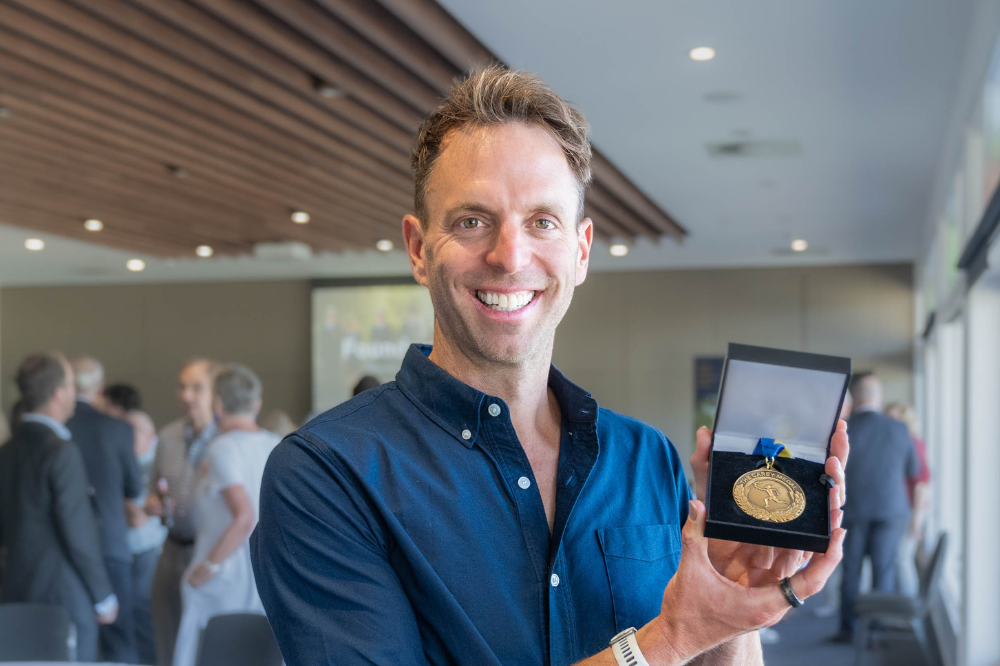
A pioneering mental health advocate has been awarded a prestigious medal by his alma mater for his work in driving improved wellbeing outcomes of Australians over the past 13 years.
Hugh van Cuylenburg, who graduated from Carey Baptist Grammar School in 1998 as School Captain, went on to launch the Resilience Project in 2011. The organisation delivers emotionally engaging programs and provides evidence-based, practical wellbeing strategies to help people build resilience.
Last week, Cuylenburg received the 2023 Carey Medal from the School’s Carey Medal Committee in recognition of his work.
A formula for better wellbeing
After completing his Bachelor of Education at RMIT, Cuylenburg travelled to a small village in the Himalayas to work as a volunteer teacher in an underprivileged school. The people in the village had no access to running water or electricity and many families couldn’t afford to provide lunch for their children every day, and yet, the people of this village were the happiest people he’d ever met.
After noticing this and feeling as though he may have finally found his answer, Cuylenburg realised that there were three practices people in the community had incorporated into every day: gratitude, empathy and mindfulness (GEM).
Upon returning to Australia and spending time researching these three principles, Cuylenburg discovered that the evidence was there all along. Cuylenburg believes that by embracing the GEM principles and incorporating them into our everyday lives, we can drastically improve our own sense of wellbeing, fulfilment and happiness.
Cuylenburg also came to realise how prevalent mental illness is in Australia. It is estimated that one in five adults will experience mental ill-health each year, one in four adolescents and one in seven primary school-aged children have a mental illness, and 65% of adolescents do not seek help for mental illness.
With everything Cuylenburg had learnt, it became his mission to improve these statistics and equip young people with the tools and strategies to support their mental health. Cuylenburg said these discoveries were the foundation of the Resilience Project.
“I was a teacher at the time and naturally focussed on adolescent mental health, but the Project quickly became relevant to people of all ages and walks of life,” Cuylenburg said.
“We now present to all sorts of organisations, still a lot of schools but also professional sports clubs and corporations and communities.”
The original version of this article appeared as a media release from Carey Baptist Grammar School.


